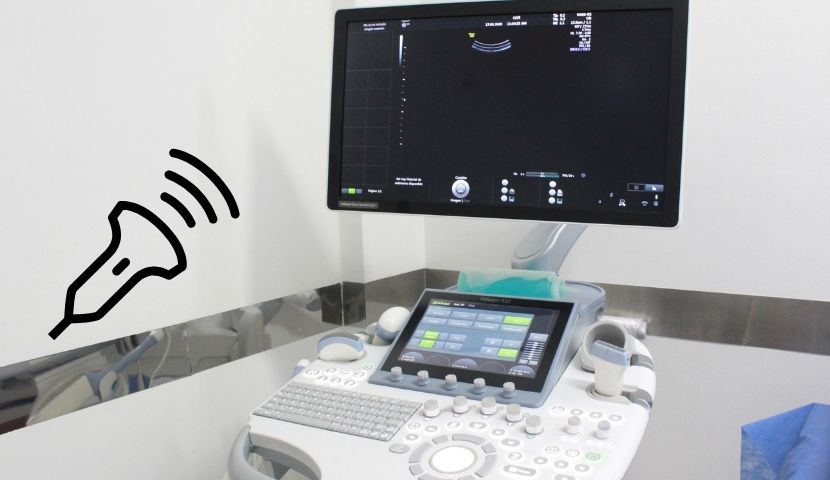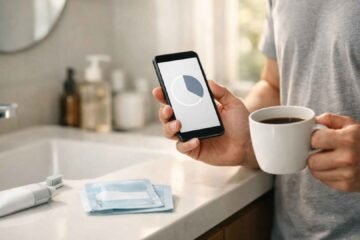If you’re a coffee enthusiast and have an upcoming ultrasound, you’re probably wondering: Can I drink coffee while fasting for an ultrasound? The answer depends on the type of ultrasound you’re undergoing, as well as the specific fasting instructions given by your healthcare provider.

To help you prepare effectively, let’s explore the rules, guidelines, and common questions regarding coffee consumption during ultrasound fasting.
You may like reading: https://coffeemakerusa.com/coffee-with-uti-impact/
Understanding Ultrasound Fasting Requirements
What Is an Ultrasound?
An ultrasound is a medical imaging technique that uses high-frequency sound waves to create detailed images of the inside of your body. It’s most commonly used to examine organs such as the liver, kidneys, bladder, and heart. Ultrasound procedures also include examinations of the pelvic and abdominal areas, which may require special fasting protocols to ensure optimal imaging results.
Why Is Fasting Important for Ultrasound Procedures?
Fasting before an ultrasound is essential for obtaining clear and accurate results. It serves several purposes:
- Reducing Gas and Bloating: Certain foods and beverages can cause gas and bloating in the digestive tract, which can obstruct ultrasound waves, leading to unclear images. Fasting helps minimize these effects.
- Preventing Gallbladder Contraction: If you eat or drink before an abdominal ultrasound, the gallbladder can contract. This can make it challenging for doctors to evaluate its condition or perform a comprehensive assessment.
- Enhancing Bladder Visibility: For pelvic ultrasounds, having a full bladder is necessary. A full bladder pushes other organs out of the way, providing a clear view of the reproductive organs.
Understanding why fasting is essential can help you follow the necessary guidelines effectively.
Can I Drink Coffee Before an Ultrasound?

When preparing for an ultrasound, coffee consumption is often a topic of concern. Let’s break down the dos and don’ts of drinking coffee during fasting:
Black Coffee: Generally Acceptable
For most ultrasounds, black coffee without additives is generally accepted. The main reason for this is that black coffee contains no fats, sugars, or solid substances that could interfere with the imaging process. However, there are some important conditions to follow:
- No Milk or Cream: Dairy products like milk or cream contain fats that could distort the ultrasound images.
- No Sugar or Sweeteners: Sugar or artificial sweeteners may stimulate the digestive system, leading to bloating, which can affect the clarity of your ultrasound scan.
Caffeinated Beverages: Exercise Caution
While black coffee is often allowed, other caffeinated beverages should be avoided before an ultrasound:
- Coffee with Additives: Regular coffee or other caffeinated drinks that contain milk, cream, or sugar can interfere with the imaging process by introducing substances that affect your digestive system or create gas.
- Energy Drinks: These drinks may also contain added sugars, carbonation, and high caffeine content, all of which can alter digestion and potentially affect the quality of the scan.
- Sodas and Carbonated Beverages: These beverages can produce gas in the digestive system, interfering with the clarity of ultrasound images.
It’s important to note that even though black coffee is acceptable, drinking too much can have side effects that affect your overall health and comfort during the procedure.
Specific Ultrasound Types and Their Fasting Guidelines

Abdominal Ultrasound
For an abdominal ultrasound, fasting for 8 to 12 hours before the procedure is generally required. This ensures that your stomach is empty and prevents food from interfering with the scanning of the liver, kidneys, and other abdominal organs.
- Can I Drink Coffee? You may be allowed to drink black coffee (without any milk, cream, or sugar), but always check with your provider before proceeding.
- What to Avoid: Avoid consuming any solids, sugary drinks, or milk-based beverages.
Pelvic Ultrasound
A pelvic ultrasound often requires you to have a full bladder. This is to ensure clear visibility of the reproductive organs. In preparation for this type of ultrasound, your doctor may give you specific instructions regarding how much water to drink before the procedure.
- Can I Drink Coffee? Generally, water is the preferred fluid for hydrating before a pelvic ultrasound. Black coffee might be allowed if your doctor gives explicit permission.
- What to Avoid: Avoid any beverages that could cause bloating, such as caffeinated drinks with milk or sugar.
Transvaginal Ultrasound
For a transvaginal ultrasound, fasting requirements can vary depending on your doctor’s instructions. This procedure requires you to lie back and insert a probe into the vaginal canal to get clearer images of your reproductive organs.
- Can I Drink Coffee? You may be allowed to drink clear fluids, including black coffee, but be sure to ask your healthcare provider for the final word.
- What to Avoid: Avoid consuming heavy, greasy, or carbonated beverages before the scan.
Table of Common Ultrasound Types and Their Fasting Guidelines
| Type of Ultrasound | Fasting Duration | Can I Drink Coffee? | What to Avoid |
|---|---|---|---|
| Abdominal Ultrasound | 8–12 hours | Black coffee without additives | Milk, cream, sugar, soda, energy drinks |
| Pelvic Ultrasound | 8 hours | Possibly, but check with provider | Sugary drinks, dairy, carbonated beverages |
| Transvaginal Ultrasound | No strict fasting | Black coffee without additives | Sugary drinks, high-calorie beverages |
Tips for Preparing for Your Ultrasound
1. Follow Instructions Carefully
It’s critical to follow the specific fasting and drinking guidelines provided by your healthcare provider. These instructions may vary based on the type of ultrasound you’re scheduled for. If you’re unsure about what you can and cannot consume, always ask your healthcare provider.
2. Avoid Gassy Foods and Beverages
Certain foods and beverages can cause bloating or excessive gas, which can interfere with the ultrasound’s clarity. Some foods to avoid include:
- Beans and lentils
- Cruciferous vegetables (broccoli, cabbage, etc.)
- Carbonated drinks
- Dairy products (if you are lactose intolerant)
3. Stay Hydrated (But Be Cautious)
Hydration is essential, especially for pelvic ultrasounds where a full bladder is required. Drink plenty of water in the hours leading up to your procedure—but avoid any caffeinated or sugary drinks.
4. Avoid Chewing Gum
While it may seem like a small thing, chewing gum before an ultrasound can cause you to swallow air, which might contribute to bloating and affect the quality of the scan.
5. Wear Comfortable Clothing
Wear loose-fitting clothing on the day of your ultrasound, especially if you are having an abdominal ultrasound. This will make the process more comfortable and ensure that the technician can easily access the area being examined.
Read: Best Coffee Makers Under $100
Common Questions About Ultrasound Fasting
Can I Drink Water Before an Ultrasound?
Yes, drinking water is generally allowed before an ultrasound. In fact, staying hydrated is important for some types of ultrasounds, such as pelvic or abdominal ultrasounds. However, if you’re specifically instructed to avoid liquids, it’s crucial to follow those instructions.
Can I Have Tea or Other Beverages?
Herbal teas or other non-caffeinated beverages might be allowed before your ultrasound, but it’s always best to confirm this with your healthcare provider. Some teas may cause gas or bloating, which could affect the scan.
Does Drinking Coffee Affect Ultrasound Results?
In most cases, black coffee without cream, sugar, or other additives should not affect the results of your ultrasound. However, drinking too much coffee, or coffee with additives, can cause digestive disruptions like bloating, which may interfere with imaging quality.
Final Thoughts
In most cases, drinking black coffee without any additives is permissible before an ultrasound. However, the rules can vary depending on the type of ultrasound you’re having and the instructions given by your healthcare provider. Always follow your provider’s guidance to ensure the best possible results from your ultrasound procedure.
By properly preparing—whether that means fasting, drinking only clear liquids, or avoiding certain foods—you can help ensure that your ultrasound yields the clearest, most accurate results possible.
If you’re uncertain about any aspect of the preparation, don’t hesitate to ask your healthcare provider for clarification. After all, the clearer the images, the better your doctor can assess your health.



0 Comments